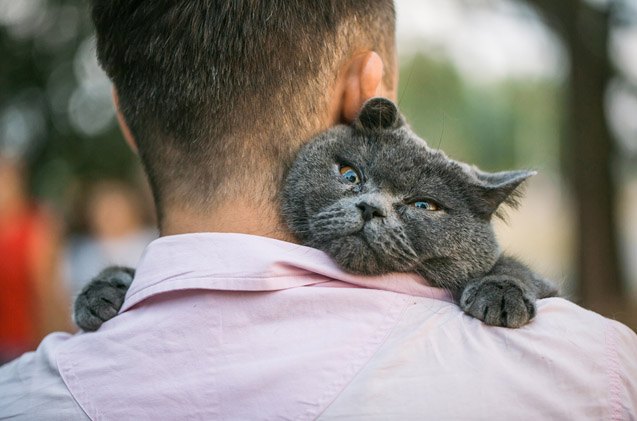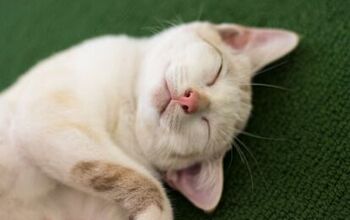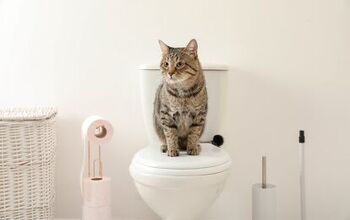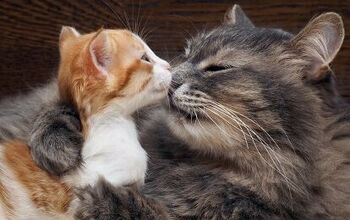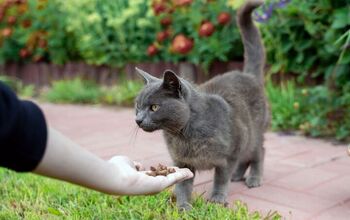To Your Cat, You’re Just Another Cat

You share your home with your cat, but have you ever wondered what your furry friend really thinks of you? It turns out that your kitty sees you not as a human, but as a fellow feline. How interesting is that?!
This sort of brings a new meaning to the idea that your cat is a part of your family, doesn’t it? After all, if your kitty views you as an equal, it isn’t so strange for you to view him as your equal too. Plus, knowing more about your feline friend’s perception of you can do more than just reinforce your bond, it can also help you better understand his behavior and his needs.
We’re fascinated by research into animal behavior, and we are always ready to learn about the best ways to take care of furbabies who rely on humans. So, let’s take a look at what led experts to conclude that your cat sees you as another kitty, shall we?
Everyone knows that, despite their many similarities, dogs and cats are quite different from one another. And because of those differences and these animals’ unique needs, taking care of a pooch isn’t exactly the same as taking care of a kitty.
When you consider some of the differences between dogs and cats, you might think about things like exercise needs, independence, and nutritional requirements. But cat behavior expert and author, John Bradshaw, came to the conclusion that there is yet another difference between dogs and cats, and it has to do with the way that they view people and understand them. Below is a short summary of what his findings have to say about your pet.
Think about how much you have learned on your own about your feline companion. How did you learn so much? You probably gained a lot of insight into your kitty’s needs and preferences simply by observing her, right?
There’s so much that pets can teach us once we get to know their one-of-a-kind personalities, as well as their likes and dislikes. One cat can be very different from another, but the only way to figure it out is by taking the time to observe what makes them happy versus what makes them feel scared or frustrated. When keeping all of this in mind, it doesn’t come as much of a surprise that Bradshaw used observation to learn more about cats and how they view their human caretakers.
Bradshaw’s research involved many hours of closely observing various groups of kitties. For example, he would watch cats in free-ranging colonies, as well as those in animal shelters. His goal was to see how the animals interact with each other, as that would help him figure out the feline social structure. And he has also gone further to study how cats’ behavior changes throughout the day.
According to Bradshaw, your cat doesn’t view you like a dog would, perhaps because felines haven’t been bred in the same way that dogs have to fulfill specific roles. While experts have found that a dog will perceive you as different from himself, and will change his behavior as a result, cats typically don’t exhibit these tendencies. As an example, a dog will play differently with a fellow canine than he would with a human. But cats continue being themselves, whether they are socializing with their own kind or with their human family.
In other words, cats haven’t changed their social behavior based on whether or not they are interacting with people. So when your cat rubs against your legs, grooms you, snuggles up next to you, or puts his tail into the air, he’s displaying the same behavior that he would display with other felines.
On top of that, your kitty is likely to exhibit the same types of behaviors around you as he would show around his mother, especially if he feels comfortable and at ease and wants to show you that he cares. For example, kittens knead their mothers, and adult cats sometimes knead their owners. Basically, kittens learn how to communicate with their mom, and adult cats continue using those behaviors to communicate with one another and their human family.
It’s also worth mentioning that this research found that cats are smart and learn how to interact with their owners to get what they want and need. For instance, they can learn the routine of every human in the house, so if you end up getting up early in the morning and feeding your cat but your spouse stays in bed, your kitty will know to bother you for some food. And your clever feline can use various vocalizations to get your attention by learning how you react to different sounds. Smart cats!
Side note: You might come across articles on this topic which state the conclusion of the research was that your kitty views you as a “cat” that’s just much larger and dumber. But, according to an interview that Bradshaw did with National Geographic, this isn’t correct. Bradshaw clarified that kitties will act the same way around people as they will around other cats they like.
Bradshaw also noted that humans are sometimes unaware of their cats’ stress levels. As in people, stress could affect your kitty’s physical and mental health.
For instance, if you have a multi-cat household and there are conflicts between the cats, that stress might lead to health problems that would require both veterinary attention as well as adjustments to help your cats get along better or avoid each other more easily.
As more research is done into the mind of kitties and what makes them tick, pet parents will be able to recognize stress and address it more effectively.
Of course, every cat is an individual, so spending time with your pet and observing his habits and traits can help you understand him. And if he’s treating you like he’d treat another feline, that’s a good sign!
So there you have it: your kitty isn’t only smart, but he also regards you as part of his family. If you call your pets your furkids, you’ll be happy to know that experts believe that your kitties feel the same way and view you not only as a guardian, but also as a forever friend.

Lisa Selvaggio is a freelance writer and editor, and our resident cats-pert, with certifications in pet nutrition and pet first aid. She enjoys producing content that helps people understand animals better so they can give their pets a safe and happy home.
More by Lisa Selvaggio



